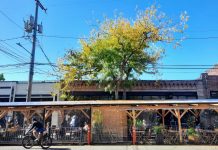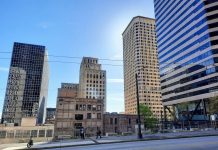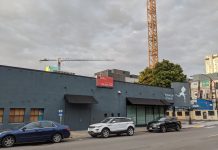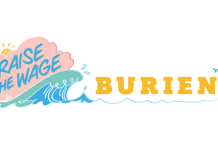Policy Lab: Why Are Seattle Restaurants So Expensive?
Seattle service workers are set to get a major wage hike, unless restaurant lobbyists get their way. But policymakers can support the restaurant industry in better ways than simply cutting worker pay.
Sunday Video: The Real Problem with “Luxury Housing”
Across North America, people claim that they want affordable housing in their communities while deriding and fighting what they perceive as "luxury housing." A...
Seattle Hopes to Spur Office-to-Housing Conversions with Regulatory Incentives
Facing waning demand for office spaces, landlords are weighing housing conversions, with Mayor Harrell and the Seattle City Council aiming to nudge them in that direction with a recently passed package of regulatory incentives. Financial incentives could be next, but hurdles remain.
Policy Lab: Tax the Filthy, Stinking Rich
Seattle has a $258 million budget deficit to solve. Mayor Bruce Harrell said he rejects notions of austerity. Good for him! I’m here to help. Let’s chart a way out of this crisis that doesn’t involve slashing services and laying off city workers.
Sunday Video: All The Ways Car Dependency Make Things Worse
Ray Delahanty of CityNerd goes through a litany of reasons why car dependency makes American society worse off from public health and environmental quality...
Harrell Hopes to Fill Downtown Storefronts by Easing Code Restrictions
In a bid to reactivate Downtown Seattle, Mayor Harrell has proposed easing code restrictions in hopes of filling vacant storefronts with newly permitted uses like crafting studios, greenhouses, medical offices, art installations, public restrooms, and research laboratories.
Op-Ed: Why We’re Taking Burien’s Minimum Wage to the Ballot Box
Raise the Wage Burien is bringing together a coalition of workers, community groups, and labor unions to gather petition signatures to put a measure on the ballot this fall to raise Burien’s minimum wage to parity with nearby cities like Tukwila, SeaTac, Seattle, and Renton. In contrast, the city council's version is riddled with loopholes.
Sunday Video: Highest Inequality Of American Cities, Ranked By Gini Index
Using the Gini coefficient which measures inequality, Ray Delahanty of CityNerd runs through the top 10 cities in America with the highest levels of...









